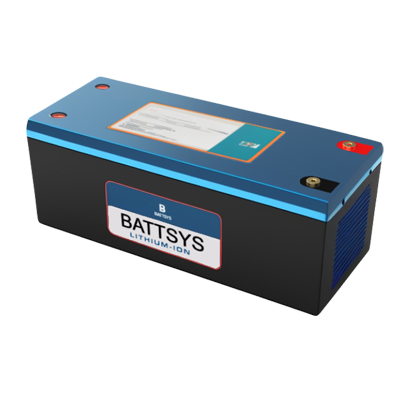What is a forklift battery?
Forklift batteries, as DC power sources for equipment such as forklifts, tractors, handling vehicles, and underground mining locomotives, are widely used in airports, stations, ports, vegetable and fruit markets, as well as industrial and mining enterprise warehouses. Forklift batteries refer to forklift specific batteries that use batteries for operations, which are the types of batteries installed in the batteries of electric forklifts.
At present, the most common
forklift battery on the market is lead-acid battery. However, due to its advantages of higher capacity, safety, and more cycles, using lithium iron phosphate batteries to replace lead-acid batteries has become a trend.
However, we have found that more forklift customers require lithium iron phosphate batteries, with few low-temperature requirements. Simple comparison:
Lithium iron phosphate battery compared to lead-acid battery
Price comparison
Lead acid batteries:$$$
Lithium iron phosphate batteries:$$$$$$$$
Feature comparison
Lithium iron phosphate batteries>lead-acid batteries
For example, if the working environment is low temperature like a freezer, then
lithium iron phosphate will definitely be better because it needs to be charged at low temperature for a long time due to working at low temperature.
Weight comparison
Lead acid batteries: heavier (available capacities of 70 kilograms and 80 kilograms per kilowatt hour)
Lithium iron phosphate batteries: lighter (available capacities of 10 kilograms and 15 kilograms per kilowatt hour)

Cost per cycle
Lithium iron phosphate batteries (more charge discharge cycles)>lead-acid batteries
Traditional lead-acid batteries have a cycle count of around 500-600 times, while lithium iron phosphate batteries have a cycle count of around 2000 times (Greep's promised cycle count for lithium iron phosphate batteries is 1500 times/3 years)
Lithium iron phosphate batteries not only have high initial costs, but also do not require replacement and maintenance costs, which is why lithium iron phosphate batteries are more economical than lead-acid batteries, and even have higher initial costs.
Due to the unparalleled advantages of higher capacity, safety, and more cycles compared to traditional lead-acid batteries, the application of lithium iron phosphate batteries in the forklift industry will inevitably have a strong impact on the original forklift market pattern. The emergence of lithium iron phosphate battery forklifts is a trend, and the rapid development of the logistics industry requires a forklift with short charging time, long usage time, stable performance, ability to withstand high-intensity operations, and high degree of automation and intelligence. The emergence of lithium iron phosphate batteries has added a bright spot to the development of the forklift industry.
With the development of various industries, the demand for higher discharge and faster charging of batteries has driven the technological improvement and application of high rate batteries. The Greep high rate lithium iron phosphate battery has been widely recognized both domestically and internationally. High magnification power lithium iron phosphate batteries are widely used in fields such as forklift batteries, electric go kart batteries, and starting power supplies.
